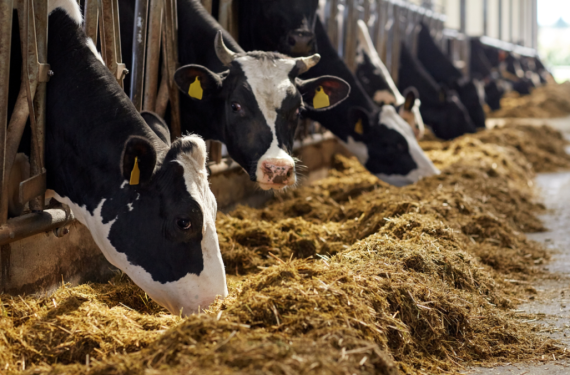Starting mid-July and for a period of ten weeks, 48 cows at the Dairy Campus in Leeuwarden will be fed cattle feed with three different types of seaweed. An additional sixteen cows will form the control group. Wageningen Livestock Research will investigate whether the ingestion of seaweed will lead to lowered methane emissions. The Dairy Campus disposes of equipment that automatically measures the feed ingestion and methane emissions of each animal.
The aim of the study is to find feed ingredients that will lower the emissions of greenhouse gases in order to lower the contribution of livestock farming to climate change.
Australia
The WUR study is a derivative of a prior study held in Australia in 2016. At the time, Australian researchers carried out lab tests and found that seaweed lowered methane emissions by over 90 percent. This results attracted the attention of the agricultural organisation LTO and BlueO2, a company focused on ocean-based climate solutions. Together with Wageningen Livestock Research, they established a broad consortium of companies. The Ministry of Agriculture, Nature and Food Quality and the Melkveefonds (Dairy Cattle Fund) are financing the study.
Seaweeds
WUR carried out a literature study to determine which of the approximately 250 different types of seaweed in Europe would qualify for a test. ‘The Australians achieved good results with red seaweed, in which the bromoform is most probably the active agent that impedes the methane production in the cow’s stomach’, says researcher Wouter Muizelaar of Wageningen Livestock Research. ‘In our study, we work with seaweeds that do not contain bromoform, as it might be toxic and could end up in the milk produced. And we use seaweed that naturally occurs in the North Sea and the Atlantic Ocean, because if this method proves successful, we would like to grow it locally.’
Top 3
Based on the literature study, the researchers selected ten types of seaweed and tested these in the lab. A top 3 resulted from this test, which is now fed to the cows at the Dairy Campus. The three types of seaweed will not achieve the same reductions as the Australians, Muizelaar reveals, but they are interesting enough to test in an applied trial. Over the next few months, the cows will be fed various rations with seaweed, and WUR will measure the effects on the methane emissions.

 Photo: Shutterstock
Photo: Shutterstock